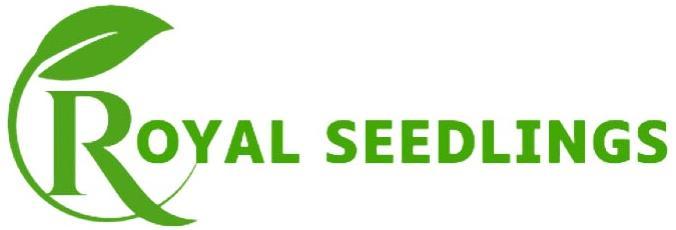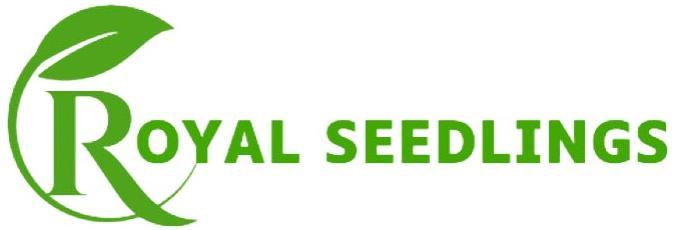Buying avocado seedlings online opens up new opportunities for smallholder farmers to access quality plant material. The digital marketplace has transformed how farmers source their seedlings, making it easier to find specific varieties and compare prices across different suppliers.
Key Benefits for Smallholder Farmers:
- Access to a wider selection of avocado varieties
- Competitive pricing through multiple supplier options
- Direct connection with certified nurseries
- Time-saving alternative to physical nursery visits
Your success in establishing a productive avocado orchard starts with selecting healthy, high-quality seedlings. The online purchasing process requires careful attention to several critical factors:
- Verifying supplier credibility
- Assessing seedling health and quality
- Selecting climate-appropriate varieties
- Understanding certification requirements
- Managing shipping and handling
These considerations protect your investment and increase your chances of developing a thriving avocado orchard. The right practices help you avoid common pitfalls such as receiving diseased plants, unsuitable varieties, or damaged seedlings.
The digital marketplace can be challenging to navigate, but with proper knowledge and careful planning, you can make informed decisions that benefit your farming operation. This guide will walk you through the essential steps to ensure you receive healthy, productive avocado seedlings that meet your farming needs.
Source Verification
Buying avocado seedlings from reputable nurseries and licensed sellers protects your investment and ensures the success of your farming venture. You need to verify the authenticity of online sellers through these essential steps:
- Check for valid business licenses and agricultural certifications
- Look for reviews and testimonials from other farmers
- Request documentation of plant health certificates
- Verify physical business addresses and contact information
Purchasing from unverified sources carries significant risks:
- Diseased or pest-infested seedlings
- Mislabeled or mixed varieties
- Poor genetic quality affecting future yields
- Non-viable plants with weak root systems
Local Agricultural Regulations
Your chosen supplier must comply with regional agricultural standards:
- Phytosanitary certification for disease-free status
- Proper registration with agricultural authorities
- Adherence to pest control protocols
- Documentation of parent tree sources
A legitimate nursery will readily provide their certification details and compliance records. You can verify these credentials through:
- Local agricultural extension offices
- Regional plant health inspection services
- Professional nursery associations
- Online government databases
Reputable sellers maintain transparent business practices and offer clear communication channels for customer support. They provide detailed information about their propagation methods and maintain proper documentation of their stock’s lineage.
Seedling Quality Assessment
A thorough inspection of avocado seedlings reveals their health status and growth potential. You need to look for specific visual indicators that signal a robust, healthy plant:
Leaf Health Indicators:
- Deep green, glossy leaves without spots or discoloration
- Uniform leaf size and shape across the plant
- No signs of curling, yellowing, or browning
- Fresh growth at the tips
Stem Quality Checks:
- Straight, sturdy main stem
- No cracks, lesions, or unusual marks
- Balanced branching pattern
- Green, healthy bark without dark patches
Root System Evaluation:
- White or light-colored roots indicate active growth
- Roots should spread evenly throughout the growing medium
- No circling or binding at the container bottom
- Absence of dark, mushy, or rotting sections
Disease and Pest Inspection:
- Check leaf undersides for insects or eggs
- Look for webbing, which signals spider mites
- Inspect for powdery mildew or sooty mold
- Examine for signs of root rot at the stem base
A healthy avocado seedling displays vigorous growth with a strong central leader and well-distributed side branches. The root ball should feel firm when gently squeezed, and the growing medium should hold together without falling apart. These quality markers predict successful transplanting and establishment in your orchard.
Choosing the Right Avocado Variety Based on Your Environment
Selecting the right avocado variety for your local environment plays a crucial role in the success of your orchard. Your local climate conditions directly impact the growth, fruit production, and survival rate of your avocado trees.
Climate Considerations
When choosing an avocado variety, it’s important to consider how well it can tolerate specific climate conditions:
- Temperature tolerance: Cold-hardy varieties like ‘Mexicola’ and ‘Bacon’ can withstand temperatures as low as 20°F (-6°C)
- Heat resistance: ‘Reed’ and ‘Lula’ varieties perform well in hot climates
- Rainfall requirements: ‘Hass’ and ‘Fuerte’ adapt better to areas with moderate rainfall
- Wind exposure: ‘Pinkerton’ shows better resistance to strong winds
Soil Type Compatibility
Different avocado varieties have varying preferences when it comes to soil types:
- Sandy soils: ‘Booth 8’ and ‘Choquette’ varieties show excellent adaptation
- Clay soils: ‘Zutano’ and ‘Stewart’ perform better in heavier soil types
- Drainage requirements: ‘Duke’ and ‘Topa Topa’ tolerate less-than-ideal drainage conditions
Assessing Your Local Environmental Factors
To make informed decisions about which avocado varieties are most suitable for your orchard, you need to assess the environmental factors specific to your location. Here are some key aspects to consider:
- Record temperature ranges throughout the year
- Measure annual rainfall patterns
- Test soil pH and composition
- Evaluate drainage capacity
Local agricultural extension services often maintain data on avocado variety performance in your specific region. This information helps identify varieties that have historically shown success in similar growing conditions.
Pollination Requirements
Remember to check the pollination requirements of your chosen variety – some avocados need cross-pollination from compatible varieties to produce fruit effectively.
Certification and Compliance with Quality Standards
Certified avocado seedlings protect your investment by ensuring disease-free, high-quality plants. Nematode-free status stands as a critical certification requirement – these microscopic pests can devastate root systems, leading to stunted growth and reduced yields.
Key certification requirements include:
- Root health verification through laboratory testing
- Soil sterilization documentation from the nursery
- Regular pest inspection records
- Compliance certificates from local agricultural authorities
Reputable nurseries implement comprehensive pest cleanliness programs to protect their seedlings. These programs target common avocado pests:
- Avocado lace bug
- Root rot pathogens
- Scale insects
- Mites
- Thrips
You’ll recognize certified commercially clean seedlings by:
- Clear labeling showing certification status
- Batch numbers for traceability
- Health certificates from regulatory bodies
- Documentation of pest management protocols
Ask your supplier for detailed pest management records and certification documentation. Professional nurseries maintain strict quarantine measures, including:
- Dedicated sanitation zones
- Regular pesticide application schedules
- Staff training on pest identification
- Isolation areas for new plant material
These rigorous standards help prevent the spread of pests and diseases across farming communities, safeguarding your avocado orchard’s future productivity.
Packaging and Shipping Considerations for Seedlings’ Safety During Transport
Proper packaging plays a vital role in protecting your avocado seedlings during transit. Ask your supplier about their specific packaging methods, which should ideally include essential packaging elements such as:
- Breathable cardboard boxes with ventilation holes
- Protective padding around root balls
- Moisture-retaining materials to prevent dehydration
- Secure stem supports to prevent bending
- Clear labeling for proper handling
The shipping duration directly impacts seedling health. Select suppliers who offer:
- Express shipping options (2-3 days maximum)
- Temperature-controlled transport vehicles
- Real-time tracking capabilities
- Insurance coverage for damaged goods
It’s crucial to consider how to transport perishable foods like seedlings, as the shipping conditions can significantly affect their health.
Pre-Shipping Checklist:
- Confirm exact delivery dates
- Request detailed care instructions
- Verify the supplier’s replacement policy
- Check weather conditions at both origin and destination
- Plan for immediate unpacking upon arrival
Your supplier should secure each seedling individually within the shipping container. The root ball needs careful wrapping in damp moss or similar materials to maintain moisture levels, as outlined in this scientific article on plant transport. Professional nurseries often use specialized plant boxes with built-in support structures to prevent shifting during transport.
Request photos of the packaging process from your supplier – this helps verify their commitment to proper handling practices. Many quality suppliers include temperature indicators in their shipments to monitor conditions during transit.
Post-Purchase Care: Acclimating Seedlings and Planting Them Right
Your newly arrived avocado seedlings need proper acclimation to thrive in their new environment. Place them in a shaded area for 5-7 days, gradually increasing their exposure to sunlight. This gentle transition helps prevent transplant shock and leaf burn.
Ideal Planting Locations:
- Select spots with well-draining soil
- Maintain 20-25 feet spacing between trees
- Choose areas protected from strong winds
- Ensure 6+ hours of direct sunlight daily
Planting Tips:
- Dig holes twice the size of the root ball
- Add organic matter to improve soil structure
- Water thoroughly after planting
- Apply 2-3 inches of mulch around the base
Monitor your seedlings closely during the first month, maintaining consistent soil moisture without overwatering. Young avocado trees benefit from regular, light fertilization starting 6 weeks after planting.
Knowledge Sharing: Engaging with Agricultural Communities
Connecting with local farmer groups opens doors to valuable insights and shared experiences in avocado farming. These communities often organize workshops, field visits, and mentorship programs where you can learn proven cultivation techniques from experienced growers.
Benefits of Agricultural Extension Services
Agricultural extension services provide professional guidance tailored to your specific farming needs. These experts can:
- Assess your soil conditions
- Recommend suitable avocado varieties
- Guide you through pest management strategies
- Share updates on market trends
Online Platforms for Farmer Collaboration
You’ll find dedicated WhatsApp groups and Facebook communities where farmers exchange real-time advice and solutions. Many extension offices now offer virtual consultations and maintain online resource libraries, making expert knowledge accessible right from your smartphone.
The combined wisdom of these agricultural networks helps you avoid common pitfalls and adopt successful farming practices specific to your region.
Conclusion
Buying avocado seedlings online requires a strategic approach to risk management. Your success as a smallholder farmer depends on implementing these essential practices:
- Verifying seller credentials
- Assessing seedling quality
- Selecting climate-appropriate varieties
- Ensuring proper certification
- Managing shipping logistics
- Following post-purchase care protocols
These practices protect your investment and set the foundation for a thriving avocado orchard. With knowledge and connections to agricultural communities, you’re equipped to make informed decisions in your online seedling purchases. Remember: quality seedlings from trusted sources, along with proper care practices, lead to successful avocado farming.
FAQs (Frequently Asked Questions)
Why is it important for smallholder farmers to follow best practices when buying avocado seedlings online?
Following best practices helps smallholder farmers minimize risks, ensure seedling quality, and maximize the chances of successful avocado cultivation by purchasing healthy, well-suited seedlings from reputable sources.
How can smallholder farmers verify the source of avocado seedlings when purchasing online?
Farmers should buy from reputable nurseries and licensed sellers who comply with local agricultural regulations and certification standards to avoid risks associated with unreliable sources.
What key factors should be considered when assessing the quality of avocado seedlings online?
Farmers should inspect seedlings for vibrant leaves, sturdy stems, strong and well-formed root systems, and ensure they are free from pests and diseases such as leaf spots or wilting.
How do environmental factors influence the selection of avocado seedling varieties for smallholder farmers?
Selecting varieties suited to local climate conditions like temperature and rainfall, as well as soil types such as sandy or clayey soils, ensures better growth performance and adaptation of avocado trees.
What certification and quality standards should be checked when buying avocado seedlings online?
Seedlings should have nematode-free status and be part of pest cleanliness programs to guarantee they are commercially clean and free from common pests like the avocado lace bug.
What are the best practices for ensuring safe packaging and shipping of avocado seedlings purchased online?
Nurseries should use breathable boxes or padded wraps to protect seedlings during transit. Buyers should confirm shipping methods and delivery timelines to plan proper care upon arrival.






